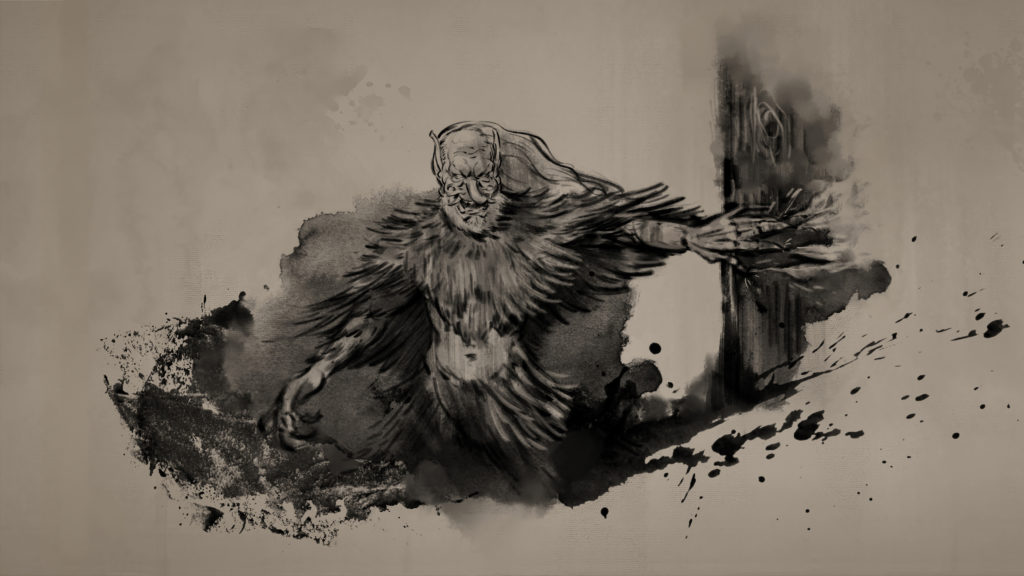
Tengu are one of the most iconic yokai found across Japan. These entities come in two varieties: the older kotengu or karasu-tengu and the newer daitengu. Kotengu have a long history of terrorizing and devouring humans, while daitengu tend to remain aloof and disinterested in human affairs. However, both types are incredibly powerful and dangerous.
Most tengu share similar physical traits: they are masculine, dressed in long robes resembling that of a yamabushi—a Japanese mountain ascetic often connected to the Shugendo religion—and they have bird-like wings. However, daitengu look largely humanoid with vivid red faces, long noses, and fierce scowls. Kotengu, meanwhile, are effectively anthropomorphic birds, often taking the form of crows or black kites. As a general rule, daitengu are larger and more physically imposing than kotengu, who are often depicted as their servants.
Just as kitsune are connected to Shinto, tengu have a history with Buddhism. But while kitsune often serve or become kami, tengu are traditionally the enemies of Buddhism. There are many stories of tengu attempting to masquerade as Buddhas or trying to lure monks off the path of enlightenment. They often try to lure monks into worshipping them instead of following the teachings of others. Worshipping a tengu will grant very real power, allowing monks to save the lives of emperors and reap great rewards, but it will not help them achieve enlightenment.
While Kotengu are usually physical threats that can be outwitted by clever humans, daitengu are known to cause great natural disasters when angered. However, daitengu may also grant aid to worthy humans or even teach them secrets, magic, and swordsmanship. This doesn’t change the fact that tengu as a whole are deadly and incredibly unpredictable.
In Tale of Ronin, players may well encounter people who believe in the stories of tengu and live accordingly. Certain choices may even lead gamers to meet mysterious figures who don’t seem quite human and demand to be respected, or even worshipped…